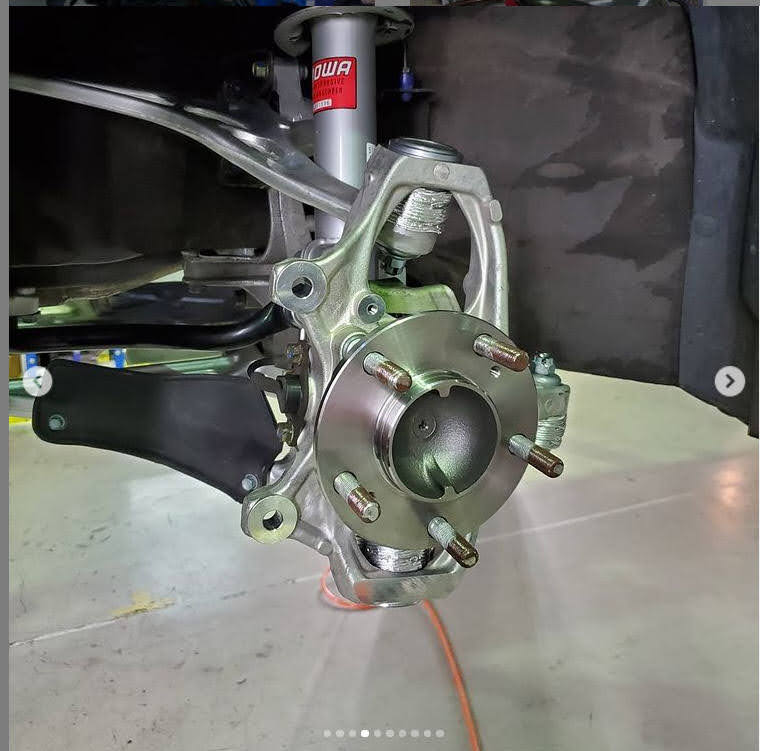I was perusing the T3TEC instagram page and came across a picture where they were doing a complete suspension refresh on a NA1 NSX-R. Very cool stuff to see all that shiny new aluminum alloy, but something else caught my eye. It appeared that they put about 10 mm worth of copper anti-seize on the wheel studs of the new hubs.

That got me thinking, why lube the threads? It would change the torque. That led me to this extremely helpful video. It suggests some lubrication may be helpful on old or weathered threads to achieve the designed clamping load from the manufacturer. It also implies that we all might be driving around on wheels that are not clamped to the minimum tightness! I may try just a touch of anti-seize on my studs, as they are a bit rough, but leave the cone seating surface dry.
However, this still doesn't explain why T3TEC would use lube on new studs. Any ideas why?
That got me thinking, why lube the threads? It would change the torque. That led me to this extremely helpful video. It suggests some lubrication may be helpful on old or weathered threads to achieve the designed clamping load from the manufacturer. It also implies that we all might be driving around on wheels that are not clamped to the minimum tightness! I may try just a touch of anti-seize on my studs, as they are a bit rough, but leave the cone seating surface dry.
However, this still doesn't explain why T3TEC would use lube on new studs. Any ideas why?
Last edited:






